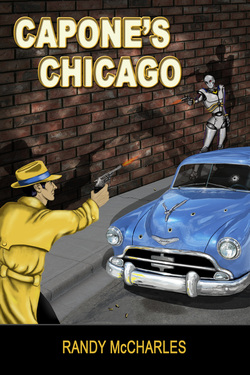So those of you who have read our posts over the years know I’m a mommy, writer and lawyer. My husband gets a bit put out that I don’t have “wife” in that list, but he knows I love him so he only snarls a little. It’s endearing. Really. Oh, and did I also mention we live on a 5 acre horse farm? Anyway, what all that multi-tasking means is I have a lot to do. I mean, A LOT. A “normal” to-to list across those different roles has over 70 items on it. Lawyers are an odd breed. Hal of us resist change and half of us embrace it. I’ve waffled back and forth between the high and low tech.
I’ve used a paper “to do” list. Often multiple lists would be scattered over my desk. These scraps of paper make for messy desks and the most urgent Post-it Note is always the one you look at last. The fully manual “system” didn’t last long. Then I moved to keeping that same “to do” list in a Word document. It works. Sort of. The problem with a “to do” list “system” is you track the tasks that lead to your goals but not actually your goals. The best thing about the passage of a decade is that technology has dramatically changed. There are hundreds, if not thousands, of organizational tools and goal trackers. If you lose track of your goals you can’t measure your progress. All motion is not progress.
Someone else is writing about goal setting this month so I’ll just assume you can set them with the help of our upcoming and awesome guest post. Once you know where you are heading you need to set milestones and make sure you hit them.
Here’s what I’m currently using:
https://www.Todolist.com This is a basic to do list. I use it to keep track of household tasks like laundry. The nice thing about this tool is you can share your lists with anyone. So both Matt (that’s the hubby in case you were wondering) and I can add and take items off it. This tool has greatly helped us coordinate tasks without having to track each other down. We can designate which child is responsible for what task. So Bobby usually gets loading and unloading the dishwasher and Mikey gets vacuuming the downstairs. Even better once someone is done a task that person can mark it off and see what else is left to do. I’ve found this to be a useful tool for task completion but not goal management.
Pipe Drive, https://app.pipedrive.com/pipeline. I’ve only recently started with this tool. Pipe Drive helps you keep track of “jobs” or “work” in your pipe line. A pipe line is the channel through which your prospective customers flow. Pipe Drive allows you to input an opportunity – say an open call for an anthology -, track how that opportunity moves through your process and, ultimately whether you won or lost the opportunity. Pipe Drive also allows you to attach a monetary value to the opportunity. Let’s take that anthology again. Submissions are limited to 7000 words and pay is “professional rate” which The Science Fiction and Fantasy Writers of America defines as 5 cents or more a word. Let’s assume this anthology pays 5 cents a word. The maximum value for the opportunity is $350.
By forcing you to put a price to the opportunity Pipe Drive helps you can set priorities. If there is another anthology opportunity with the same deadline paying 6 cents a word for a maximum of 6000 words or $360 and you’re short on time, which opportunity do you pursue? The one with the higher value.
You can use Pipe Drive to track your networking contacts and your conversion rates to customer or business partner. Pipe Drive also emails me a daily “to do” list based on deadlines I’ve set and my opportunities. Pipe Drive charges a really nominal monthly fee. Seriously , two cups of designer coffee gets you this tool.
My next new favorite tool is InfusionSoft – http://infusionsoft.com. This online tool does amazing things. Ever wonder how to online market to get to your sales goals? Ever wonder if your online or email marketing efforts do you any good? Ever tried managing more than one marketing campaign at once? Then you NEED InfusionSoft. It’s new Snap application lets you import business cards directly into the management tool and your phone’s contact list. It has a calendar to keep all your events and templates for certain types of email and electronic (webinars, free consultation, and a host of other) campaigns. Again, I’ve only started using this tool so my current use barely scratches the surface.
I am using InfusionSoft for my part of the EWomen Succeeding Through Doubt Fear and Crisis book launch in August. InfusionSoft will create a landing page for people to sign up for my bonus “gifts” for pre-purchasing the books. When someone signs up InfusionSoft will capture their email for my mailing list. I’ll also use the system to run the webinar and track who actually attends or doesn’t. InfusionSoft will then auto send a thank you to people who attended and follow-up with the people who missed the presentation. It will send attendees the link to the ebook. Best yet, InfusionSoft will generate the metrics to tell me if the campaign actually accomplished what I wanted it to. Everything is automated through the software! Less of my time on administrative tasks and more time spent at tasks that earn me money and bring me closer to my goals.
“What are those goals?” you ask.
Like my life I have goals for the different aspects of my life that support a greater goal. One of the reason people introduce me as “not your typical lawyer” is I remember that my calling as a lawyer is to serve my clients. So where am I headed? My boys graduated from college and standing on their own . Minimum of two books published a year. Five paid speaking opportunities a year. A law firm of 10 attorneys and 3-4 staff members. These income streams will give me the opportunity to provide pro bono assistance to low-income or otherwise disadvantaged groups in setting up their business and making sure they have the legal structure in place to succeed in their callings.


 One and all, we are here because we love stories. We were touched at some point in our lives by the words of another and were inspired to share our own thoughts and creativity with the world. Writers are born from fans. So then, it would be absolutely, utterly inconceivable that we, as authors, would cringe at any amount of fan attention. Honestly, it depends on the person. First and foremost, writers are people, and many of us are introverts. Interacting with people isn’t easy, so many authors create a mental space that I call the “fan-zone.”
One and all, we are here because we love stories. We were touched at some point in our lives by the words of another and were inspired to share our own thoughts and creativity with the world. Writers are born from fans. So then, it would be absolutely, utterly inconceivable that we, as authors, would cringe at any amount of fan attention. Honestly, it depends on the person. First and foremost, writers are people, and many of us are introverts. Interacting with people isn’t easy, so many authors create a mental space that I call the “fan-zone.”

 Randy McCharles Bio:Randy McCharles is an award-winning author of speculative short fiction, and was included in Year’s Best Fantasy 9. In January 2014, he left his day job to write full time and focus his attention on novel length works. When not making up tall tales, Randy organizes literary events, including chairing the
Randy McCharles Bio:Randy McCharles is an award-winning author of speculative short fiction, and was included in Year’s Best Fantasy 9. In January 2014, he left his day job to write full time and focus his attention on novel length works. When not making up tall tales, Randy organizes literary events, including chairing the